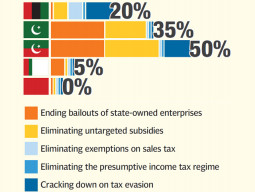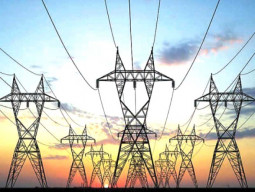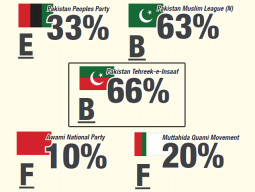
No matter how well-meaning an incoming administration, they cannot be effective in what they want to achieve unless they pay attention to the gross inefficiency of the government machinery. After all, there is no use in giving orders if the government does not have the capacity to carry them out.
For the sake of the economy, therefore, it is vital that the next administration improve the ability of the state to govern the country. To this end, we have identified five criteria that we believe can significantly improve the government’s efficiency: devolving real autonomy to local governments, reducing the overlap between federal and provincial ministries, better data collection, breaking the Civil Service of Pakistan’s monopoly on government positions, and reducing the amount of time it takes to decide court cases.
Devolution of authority to local governments is vital. After all, a lot more roads are likely to be in good shape if the approval for their repair work does not have to come all the way from Islamabad. In delivering the services that affect the everyday lives of ordinary citizens, local governments – elected and properly empowered – are a highly effective tool.
All political parties pay lip service to this idea, but only the PTI and MQM present ideas on exactly how to implement them. And in our analysis, we found the PTI’s programme to be somewhat stronger, since the MQM’s plan left questions of revenue sources almost completely unanswered.But it is not just the local level that needs empowerment: the provinces have yet to take control of the authorities devolved to them by Islamabad under the 18th Amendment to the Constitution. There is considerable overlap between the federal and provincial ministries.

On this score, the ANP and MQM are both explicit about their desire to abolish many federal ministries and have most government work done at the provincial and local levels. The MQM and ANP’s strength on this criterion is unsurprising: as mostly local parties they have incentive to reduce the power of the federal government.
Even at the federal level, however, many reforms are often either thwarted or badly implemented owing to the poor human capital quality in the civil service (translation: bureaucrats are incompetent). The most competent segments of the government are organisations like the State Bank of Pakistan and the Securities and Exchanges Commission of Pakistan, which have staff that does not come from the CSP. Breaking the CSP monopoly on institutions like the Federal Board of Revenue and the finance ministry might help improve their efficiency.
The PPP makes some tentative proposals that might accomplish this, but the PML-N is more explicit in its desire to outsource many government functions to private corporations. No other party has anything to say on the matter.
Government officials, CSP or otherwise, however, need good data on the basis of which to make decisions, which makes the much-delayed census vitally important. But only the PML-N and PTI are in favour of conducting the census. The PPP, MQM and ANP do not even mention it in their manifestos at all.
And lastly, the government needs to get better at providing effective and cheap dispute resolution mechanisms through the court system. On this front, the PML-N provides a remarkably detailed plan, though the PPP and PTI are not too far behind. All three want to introduce innovations that reduce the average time it takes to process a case, increase the number of courts and judges and encourage out-of-court settlements.
Published in The Express Tribune, May 6th, 2013.
Like Business on Facebook to stay informed and join in the conversation.
COMMENTS (1)
Comments are moderated and generally will be posted if they are on-topic and not abusive.
For more information, please see our Comments FAQ




































1713853507-0/MalalaHilary-(2)1713853507-0-270x192.webp)








Many people might not realize this, but over-centralization has been one of the fundamental problems in terms of governance philosophy within Pakistan. I am glad to see that parties are taking initiative on this front to truly democratize the society. However, in practical terms, going by past governance record, I don't think most of the parties will deliver on their promises. I think PTI is the only one that is likely to follow through on this promise since they have shown it by implementing devolution of power within their party structure.